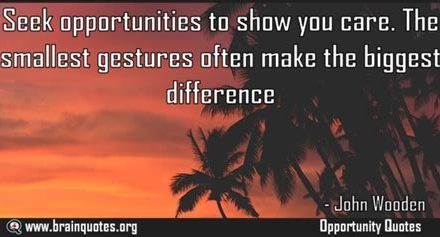As new technology disrupts the way we work, business leaders might hesitate to adopt technology that would radically change the way employees work.
After all, employees might be skeptical of major disruptions to work processes, and it might become more difficult to find technically skilled new hires.
However, many of the anxieties that people attach to new technology are actually unfounded. Overall, workers recognize the importance of new technology and welcome opportunities to master skills that will help them remain competitive in the changing job market, while job seekers are eager to work for companies that are in touch with industry changes.
In this article, we’ll look at the top three reasons employees want their organizations to adopt new technology, plus the ways new technology can benefit HR professionals.
Technology Can Reduce Repetitive Tasks – And Improve Retention
One of technology’s biggest benefits is its ability to cut down on repetitive tasks, freeing us to fill our time with more interesting or fulfilling tasks.
Outside the office, this might be as simple as using a GPS app instead of struggling with a big paper map while navigating an unfamiliar city.
But within the office, technology has the potential to be even more transformative. Machine learning tools can process vast amounts of information, freeing human workers to focus on high-level analysis. In HR, this can allow small teams to process more applications or appear in suggested listings on job search websites.
Similarly, communications management software can instantly slash the number of emails we have to send in half by automating follow up emails. Instead of sending multiple emails to remind staff about changing workplace policies, HR can simply set up a sequence of emails and turn their attention to other things.
In addition to making HR professionals’ daily lives easier, new technology can reduce turnover by making work more enjoyable. Instead of burning out from years of doing the same repetitive tasks, employees can focus on more intellectually challenging problems and feel fulfilled by opportunities to master new skills.
As soon as employees understand that new technology can make their jobs easier and more interesting, most will immediately be on board for the change.
Technology Presents Competitive Professional Development Opportunities
If you complete the initial phone screen interviews on behalf of your company, you already know that job seeker care about professional development opportunities.
Along with a good salary and benefits, modern job seekers recognize that professional development is an essential component of all great jobs. Each job an employee takes will either help them build the necessary skills for the future – or potentially stagnate their career.
Companies that offer the opportunity to work with cutting-edge technology will be instantly more attractive to candidates.
Companies that have invested in new technology signal that they are in touch with industry trends, able to present challenging opportunities for problem-solving, and able to offer valuable professional development.
As your company adopts new technology, recruiting staff should be prepared to discuss it with potential new hires. Just as interviewers evaluate a candidate’s skills, candidates actively evaluate how your company will help them advance their careers.
For example, if you are hiring an accounting candidate, he or she will want to make sure that your company has invested in the latest software that will ensure work is completed as accurately and efficiently as possible. The same is true for graphic designers, marketers, IT staff, and countless other roles.
By training your recruiting staff to discuss your company’s adoption of new technology with candidates, you can advance your company’s reputation as a forward-thinking, modern organization.
HR Can Provide Better Customer Service
Many forms of new business technology are aimed at providing better customer service.
As companies find new ways to improve customers’ experience, they are better able to provide customer service options that are tailored to customers’ needs.
For example, consumers are becoming more comfortable asking chatbot questions and navigating a phone hotline helmed by a voice recognition tool.
Similarly, instead of calling customer service when purchasing a new sofa, an online shopper might download an app that can use augmented reality to show them what new furniture would look like in their homes.
As consumers grow to expect the convenient customer service options new technology provides, your employees will expect the same level of convenience in their interactions with HR.
To prevent employee frustration, HR professionals can make sure that employees know how new technology intersects with important aspects of their life at work. HR professionals can educate staff about their insurance provider’s app and teach them how to navigate their online payroll account or opt out of paper statements.
By helping employees make the most of customer service technologies that are available to them, HR professionals can ensure that employees receive the same customer service benefits that they are expected to give to provide for customers each day.
Many Employees Welcome New Technology
Although new technology can inspire fear or anxiety in workers, it can also serve as a key way to attract new hires and keep current employees feeling challenged and engaged.
Companies that invest in new technology can reduce turnover by reducing repetitive tasks and providing learning opportunities to employees. Additionally, businesses that are early adopters of new technology can improve their reputation among job seekers.
Finally, HR professionals are instrumental in helping employees navigate the myriad ways new technology improves the experience of navigating insurance questions and payroll.
Overall, new technology doesn’t have to be scary – and might even become your business’s secret weapon.
Latest posts by Michelle Delgado (see all)
- 3 Reasons Current and Potential Employees Welcome New Technology - July 17, 2018













